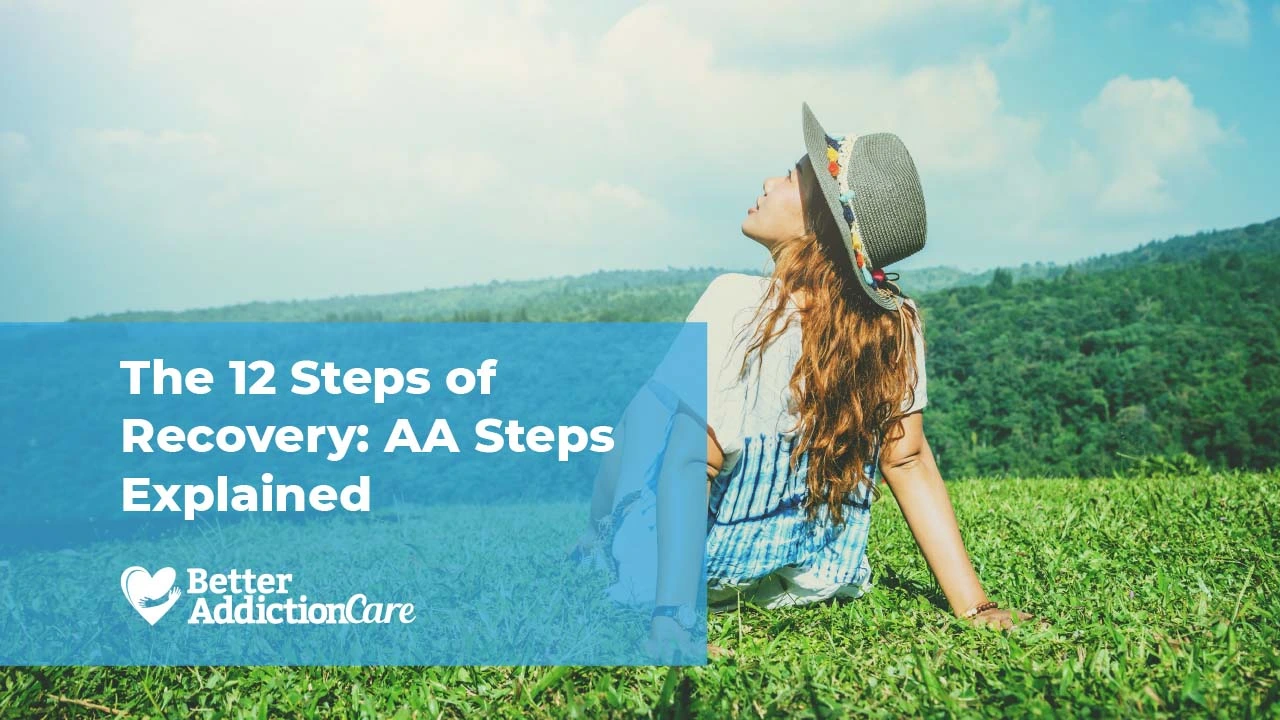Vitamins for Recovery from Alcohol Addiction
Alcohol abuse and addiction can cause many vitamin and mineral deficiencies in the body. The reason for this is two-fold: alcohol use can prevent your body from absorbing the vital nutrients it needs to function optimally, and often, chronic drinking results in poor eating habits, which further contributes to vitamin deficiencies. Insufficient vitamin and mineral levels can lead to a host of dangerous medical complications, but there are many vitamins for alcoholics available that can help restore those levels, improve both your physical and mental health and aid in the alcohol detox and recovery process.

Vitamin and Mineral Deficiencies Caused by Alcohol Abuse
People with an alcohol addiction tend to have low levels of vitamins A and E. This deficiency can lead to vision trouble, particularly when driving at night. Liver damage, which is already an issue with significant alcohol consumption, becomes even more serious if you are not getting enough of these vitamins.
While battling an alcohol addiction, your body likely also struggles to absorb B vitamins such as:
- B1
- B5
- B6
- B9
- B12
These nutrients help support the energy you need to fight your addiction. They also keep the brain and nervous system functioning properly and aid the metabolism with digestion and hydration.
Additionally, Vitamins C and D tend to be deficient in people who misuse alcohol. Low levels of these nutrients lead to fatigue and a compromised immune system. These vitamins also aid your body in absorbing calcium, so not getting enough vitamin C and vitamin D can make your bones weak and brittle. Low vitamin D also increases your risk of certain cancers.
Zinc is another nutrient that may be lacking in your body as you recover from alcohol addiction.Among other benefits, you need zinc to keep anxiety at manageable levels. Anxiety is a symptom of alcohol withdrawal, so increasing your zinc intake may help ease withdrawal. Moreover, low magnesium decreases muscle movement, and low iron can lead to anemia.
Conditions Caused by Vitamin B Deficiency
A particularly dangerous condition caused by severe alcohol abuse is Wernicke-Korsakoff syndrome, which is caused by a thiamine (B1) deficiency.Technically, the syndrome is comprised of two different conditions, Wernicke encephalopathy, and Korsakoff syndrome, although they frequently occur together. This condition is worrisome, as it can lead to permanent brain damage.
Symptoms of Wernicke encephalopathy include:
- Loss of muscle coordination
- Leg tremors
- Abnormal eye movements
- Drooping eyelids
- Double vision
- Confusion
- Coma
- Alcohol withdrawal
Symptoms of Kosakoff syndrome include:
- Severe memory loss
- Inability to create new memories
- Inventing stories
- Hallucinations
The sooner you seek out treatment for alcohol addiction, the sooner your risk of Wernicke-Korsakoff syndrome can be reduced with treatment and nutritional supplements for alcoholics.
Although Wernicke-Korsakoff syndrome tends to be the most widely discussed disease associated with alcoholism and insufficient vitamin B, many other medical conditions can result from a vitamin B deficiency as well. Check out the chart below to learn more about these conditions and their harmful effects.
| Vitamin | Condition | Harmful Effects |
| Vitamin B12 | Anemia | Severe fatigue, muscle weakness, weight loss |
| Cardiomyopathy | Heart failure, decreased heart function | |
| Psychosis, anxiety, depression | Risk of injury, suicidal ideation | |
| Encephalopathy and neuropathy | Cognitive issues, numbness and pain in extremities | |
| Folic acid | Macular degeneration | Poor vision |
| Encephalopathy and neuropathy | Cognitive impairment, tingling and pain in hands and feet | |
| Anemia | Severe fatigue, muscle weakness, weight loss | |
| Vitamin B6 | Dermatitis | Rashes |
| Cardiomyopathy | Heart failure, decreased heart function | |
| Peripheral neuropathy | Numbness, tingling, pain | |
| Vitamin B3 (niacin) | Pellagra | Inflammation of the tongue, skin rashes |
| Enteropathy | Diarrhea | |
| Encephalopathy | Memory issues, cognitive impairment, lower seizure threshold | |
| Vitamin B2 (riboflavin) | Dermatitis | Skin irritation |
| Glossitis | Inflammation of the tongue | |
| Anemia | Severe fatigue, muscle weakness, weight loss | |
| Dementia | ||
| Vitamin B1 (thiamine) | Wernicke-Korsakoff syndrome | Acute and chronic brain complications |
| Beri-beri | cardiomyopathy |
How Can Vitamin Therapy Help Recovery from Alcohol Addiction?
Vitamin deficiencies may lead to health complications, but you can tackle these issues when you increase your vitamin and mineral intake. Alcohol addiction could be creating any number of health issues, such as fatigue and dizziness, diseases of the mouth, memory trouble, and digestive problems. Even more seriously, a lack of proper nutrition can lead to severe issues with organs like the liver, kidneys, and heart.
All of this information may seem discouraging at first, but don’t lose hope. Vitamins for alcoholics prove effective in boosting your mood and strengthening your body. Further, balancing your diet with vitamins and minerals can also help you detox and recover from alcohol abuse.
More specifically, B vitamins can aid in the alcohol withdrawal process. Thiamine is a vital nutrient for your body’s energy metabolism and can prevent the development of Wernicke-Korsakoff syndrome during alcohol withdrawal. Additionally, insufficient folic acid levels can cause anemia. During alcohol detox, your treatment team will likely give you an oral multivitamin containing folic acid. Moreover, it is common for alcoholics to have depleted magnesium. Supplementing magnesium during alcohol detox can help improve some withdrawal symptoms. Magnesium helps your body absorb other vitamins, eases muscle aches and tension, and aids in sleep.
What Vitamins Do I Need During Treatment?
During alcohol addiction treatment, it’s important that you eat a balanced, healthy diet. Many treatment facilities employ nutritional counselors, who can create a nutrition plan for you to ensure you are replacing all of your depleted vitamins and minerals. If you don’t have access to a nutrition counselor, there are specific foods you can eat to replenish your vitamin levels.
You can increase your B vitamins by eating vegetables, such as:
- Spinach
- Broccoli
- Green peppers
- Asparagus
- Romaine lettuce
- Liver
- Beets
- Lentils
For more B1, which is a particularly important vitamin during recovery from alcoholism, you can focus on consuming wheat, beef, cereals, and milk.
You will find vitamin C in the following foods:
- Oranges
- Limes
- Lemons
- Grapefruit
- Green peppers
- Broccoli
- Strawberries
- Cantaloupe
- Cauliflower
- Brussels sprouts
For calcium, eat more dairy, kale, or spinach. To get more magnesium, eat dark leafy greens, nuts, seeds, avocados, bananas, wild salmon, and tuna. Amino acids are in lean meats, eggs, seafood, dairy, tofu, quinoa, seeds, and beans. Omega-3 fatty acids are most prevalent in salmon and nuts.
One of the best ways to boost your vitamin D naturally is to spend time in the sun but be sure to use sunscreen to reduce your risk of skin cancer. You can also take vitamin D as a supplement. To get more zinc, eat oysters, grass-fed beef, pumpkin seeds, cashews, mushrooms, and spinach.
Dietary Supplements for Alcoholism Recovery
If modifying your diet during recovery feels overwhelming, no need to worry. While the best way to get the benefits of vitamins is from food, many people take vitamins as pills, liquids, drink mixes, or gummies. Talk with your physician or a nutrition specialist to find out which is best for you. You can get vitamins over the counter at almost any grocery or drug store or even online.
One simple solution is to buy multivitamins, which contain most of the nutrients we discussed above. Taking this approach would be as simple as taking the multivitamin once per day. Try setting a reminder on your phone or asking that it be implemented into your daily medication routine at your facility.
Taking control of your health does not have to be a chore. It can be exciting and motivating for you in your recovery journey! Find foods you like that also contain the needed nutrients. Consider getting a CBC blood test to find out the nutrient deficiencies in your body. Many insurance plans cover lab work, but be sure to check with yours just in case.
As you can see, vitamins and minerals are your friends as you recover from your addiction. They can invigorate your mind and help you tackle each day with more tenacity. Vital nutrients infuse your body with the resources it needs to function properly. A well-balanced diet reduces illness, stress, and emotional discomfort.
If you or someone you know is struggling with alcohol misuse, do not wait to get help. There are resources available in your journey to fight addiction, many of which you will find on our website.
Nutrients will make your battle for health easier from beginning to end: They will ease the pain of withdrawal, build strength and motivation to stay sober, and give you the energy you need to pursue your passions again. Your physical and mental health are the foundations for all of life, and as such they deserve proper time and attention. Neglecting your health holds you back from reaching your full potential, but nurturing your body sets you up for success—for alcohol recovery and for the rest of your life.







